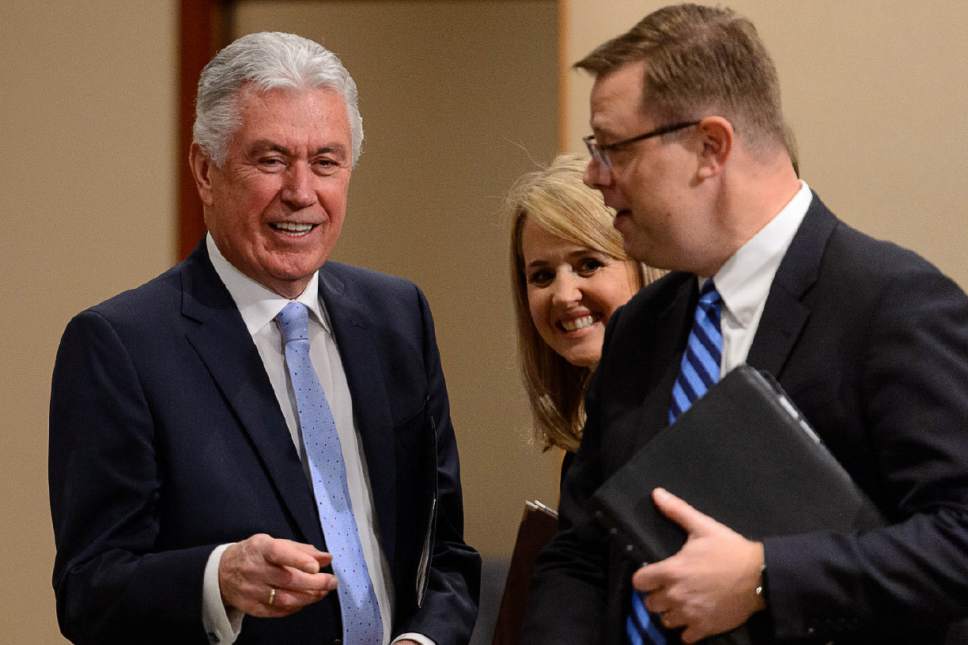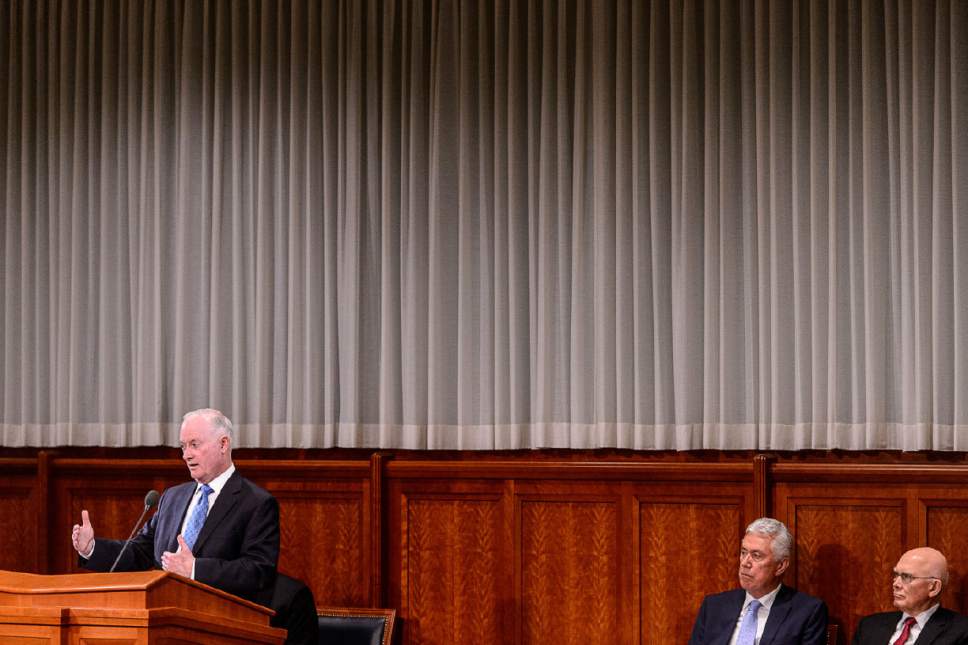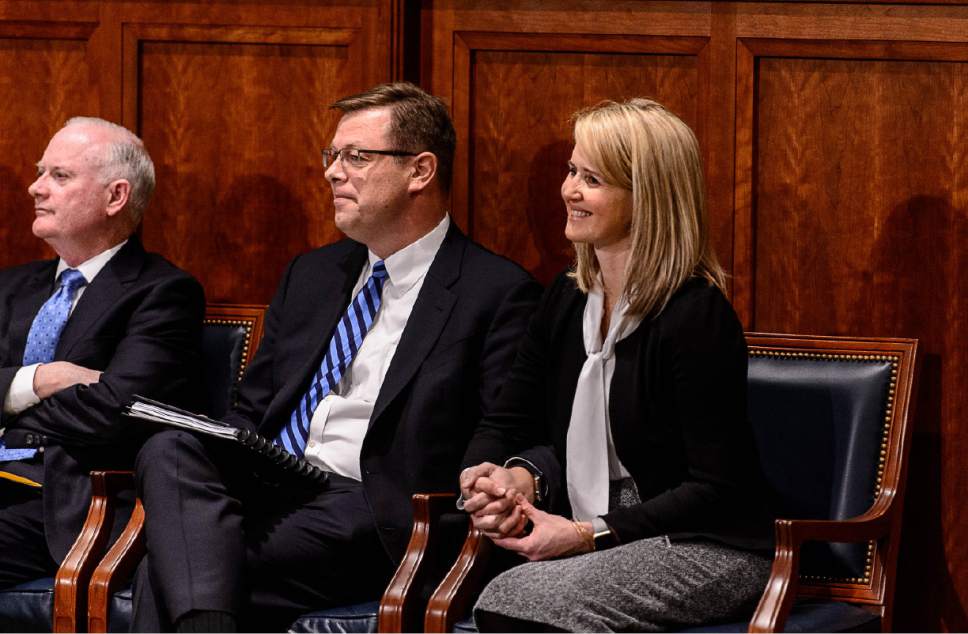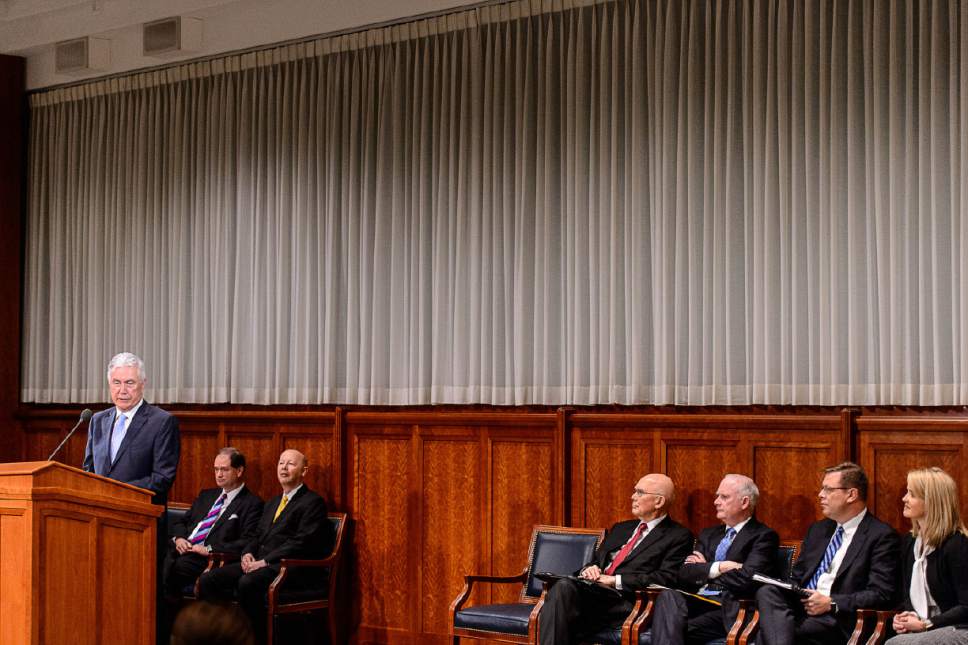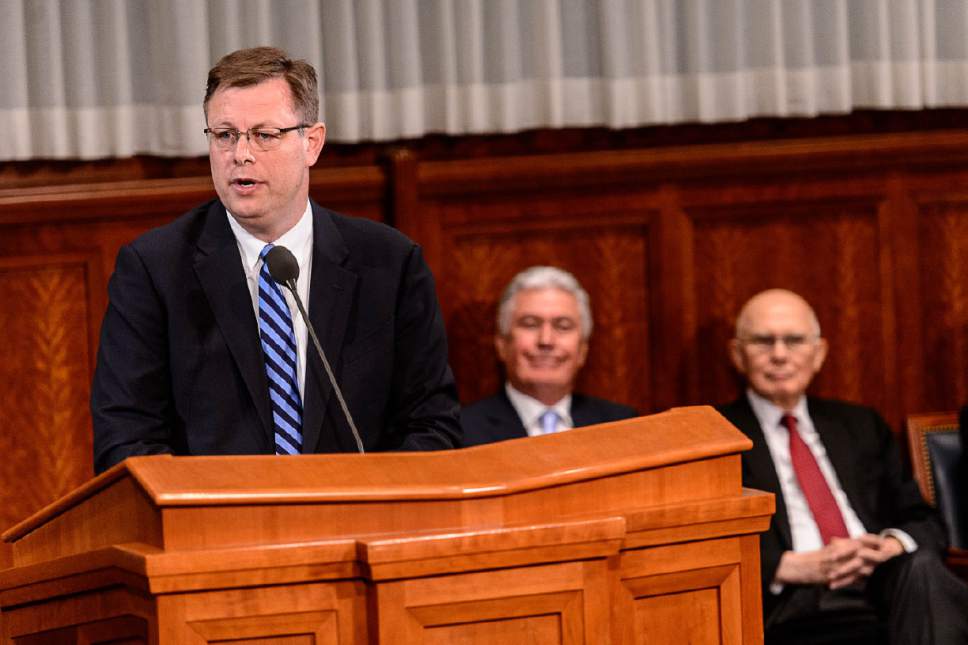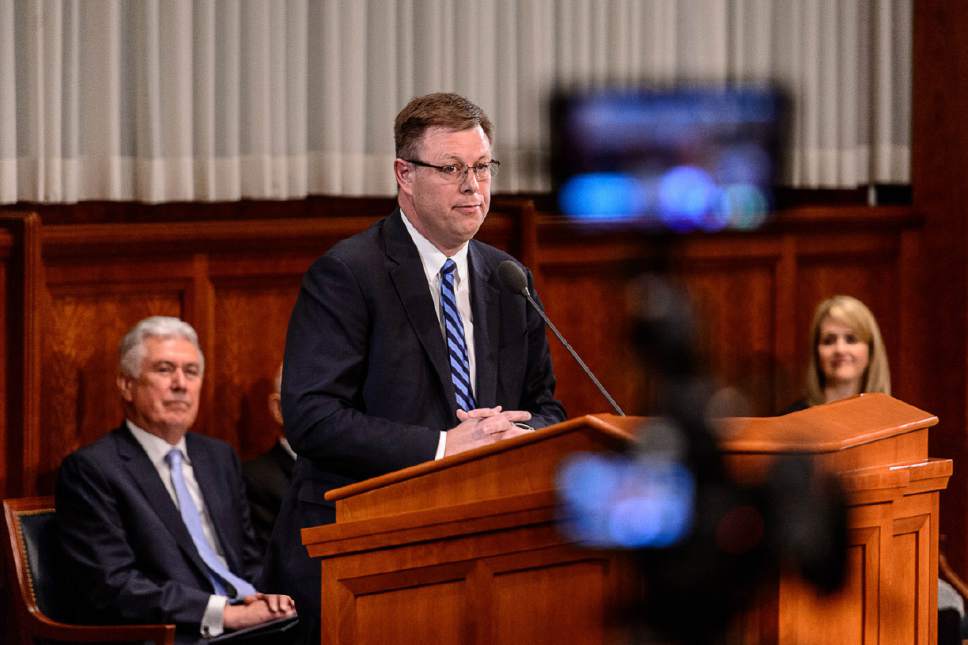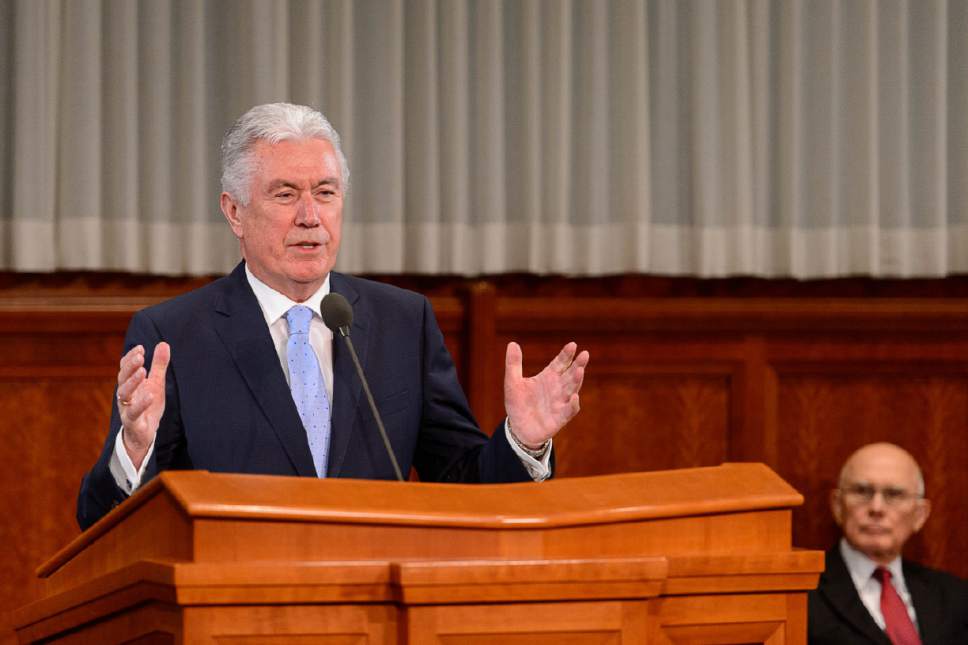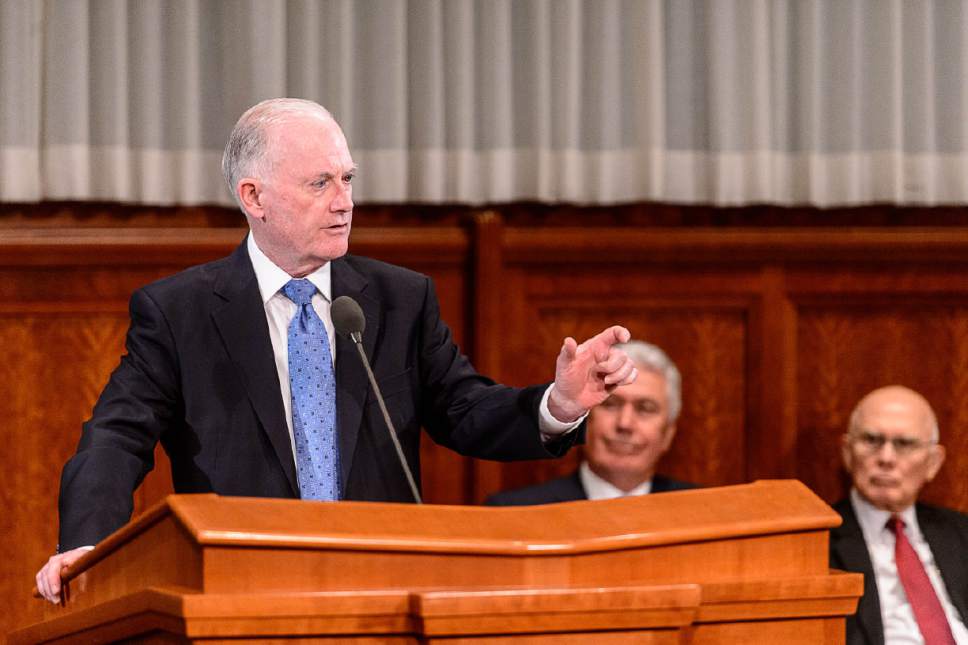This is an archived article that was published on sltrib.com in 2017, and information in the article may be outdated. It is provided only for personal research purposes and may not be reprinted.
Brigham Young University says that the world is its campus, and a new global initiative unveiled Tuesday by top Mormon church officials is taking that motto literally.
President Dieter F. Uchtdorf, second counselor in the governing First Presidency of The Church of Jesus Christ of Latter-day Saints, announced the creation of BYU-Pathway Worldwide, a greatly expanded online effort to prepare students who either are unqualified or don't currently have the means to enter online higher-education programs.
The LDS Church Educational System will manage this vast undertaking to offer academic certificates and religious training, Uchtdorf said in a news conference at the faith's Salt Lake City headquarters, making education more accessible to members and others across the globe.
"This is a day of hope and joy for young [Mormons] worldwide," he said. The program combines learning basic educational skills with religious education in local LDS Institutes of Religion or Mormon meetinghouses, Uchtdorf said, "in an environment of faith, grounded in the gospel of Jesus Christ."
Clark Gilbert, current president of BYU-Idaho and former CEO of the Deseret News, came up with the idea for Pathway in 2009 as a bridge to the world of online college education and to opportunities for successful livelihoods.
Gilbert will oversee the new organization, which left the Idaho school's presidency vacant. During a Tuesday afternoon devotional address in Rexburg, Mormon apostle Dallin H. Oaks, who once led the faith's flagship university in Provo, announced Gilbert's replacement: Henry J. Eyring.
As BYU-Idaho's 17th president, Eyring, 53, follows in the footsteps of his famous father, Henry B. Eyring, who led Ricks College (the school's forerunner) in the 1970s and now serves at first counselor in the LDS Church's First Presidency.
The younger Eyring worked for a management-consulting firm in Boston and led BYU-Provo's MBA program before moving to Rexburg in 2006 and eventually becoming academic vice president.
"I am inspired by the mission of the newly created BYU–Pathway Worldwide, as President Gilbert and his colleagues go forward now in their mission to take education to a worldwide church," Eyring said in a news release. "We at BYU–Idaho will supply them with essential support. I am grateful for consecrated colleagues on this campus who already support Pathway's mission with online curriculum and academic services."
Uchtdorf said Pathway already has "accomplished more than many could have imagined."
Some 37,000 students — including thousands in Utah — are enrolled in the program, which is administered at 500 sites in some 50 countries. Since Pathway's creation, more than 50,000 students have been served by the "huge and wonderful existing resources of the church," Uchtdorf said, including the "hidden treasures within the Church Educational System."
Pathway, to be based in Salt Lake City, covers one year (three semesters), during which students take at least one academic online course and one religious-education course (from the seminary and LDS institutes curriculum) each semester.
Participants gather at local Mormon chapels for student-to-student interaction, discussing both types of classes.
Enrollees learn how to use a computer, study for tests and interview for jobs. They improve their language skills and can take targeted courses, including in engineering and math. Because all classes are taught in English, LDS officials believe this will help students from every country find work.
Pathway participants need not be Mormon and do not require an ecclesiastical endorsement from a lay LDS bishop — like other BYU students — but will be expected to "try to live the Honor Code," said LDS Church Commissioner of Education Kim Clark. That code bars students from alcohol, drugs, coffee, premarital sex and other activities contrary to Mormon beliefs.
Admittance to the new program will not require SAT scores or prerequisites — not even a high school diploma, Clark said. And prices are low.
In the U.S., a student will pay $69 per credit hour, but that will be adjusted to other countries' income levels. In Ghana, for example, the charge will be $10 per credit.
Students who complete the program with at least a B average — and then obtain an ecclesiastical endorsement from an LDS bishop — can continue working toward an associate or bachelor's degree, or simply get a "professional certificate" that could help them find work.
The expanded program will "bless members who will not have to come to Provo [BYU's main campus], Rexburg or Laie [BYU-Hawaii]," Gilbert said Tuesday morning. "Part of the miracle [comes] when [students] understand the path [connection] between their faith and their education."
Twitter: @religiongal


